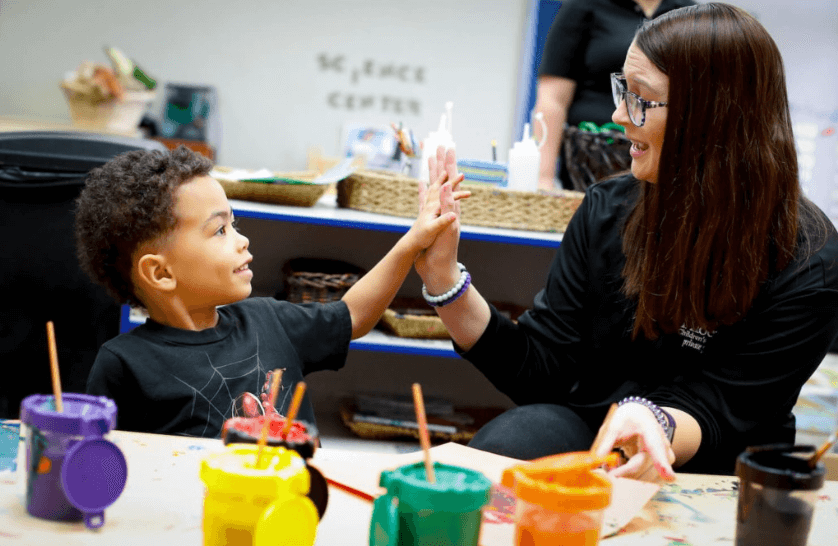
Best Infant Daycare Near Me: Top Local Facilities Reviewed for Quality Care
Finding the best infant daycare near me can feel overwhelming due to the many options available and the importance of ensuring a safe, nurturing environment for your baby. Parents often prioritize licensed facilities with well-trained staff, clean spaces, and programs that support early development. The best infant daycare combines safety, affordability, and quality care tailored to infants aged six weeks to 18 months.
Reliable daycare providers offer more than just supervision—they help nurture early growth through age-appropriate activities and routines. It’s important to consider locations with transparent reviews, recent inspection reports, and a proven track record of positive outcomes for infants.
Choosing the right infant daycare means balancing convenience with a trustworthy environment where children can thrive in their first crucial months of development. Knowing what to look for can simplify the search and give parents confidence in their decision.
Choosing the Best Infant Daycare Near Me
Choosing the right infant daycare requires careful attention to several critical aspects. Factors like staff qualifications, safety measures, and how the program supports infant development are essential. Feedback from other parents nearby also provides valuable insights.
Key Factors in Selecting a Daycare
When selecting an infant daycare, parents should first consider the provider’s staff-to-child ratio and staff qualifications. Lower ratios ensure more individualized attention, which is especially important for infants.
Location and hours of operation must also fit the family’s daily schedule. Flexibility can ease long-term childcare arrangements.
Affordability and the availability of financial assistance or sliding-scale fees might influence the choice. Finally, evaluating the facility’s cleanliness and environment helps confirm if it is welcoming and suitable for very young children.
See also: Buy Pasties Guide: Tips for Choosing Quality and Style
Program Quality and Accreditation
High-quality infant daycare programs are often accredited by recognized organizations such as the National Association for the Education of Young Children (NAEYC). Accreditation indicates adherence to strict guidelines on curriculum, staff training, and child development practices.
Such programs emphasize activities designed to support sensory, motor, and social growth appropriate to infants’ age. Daily routines that include naps, meals, and playtime should be predictable and tailored to each child’s needs.
The curriculum should also encourage parent involvement and frequent communication about the child’s progress and daily experiences.
Safety Protocols and Standards
Strict adherence to safety standards is a non-negotiable factor in infant daycare selection. Check if the daycare complies with local licensing rules regarding emergency preparedness, sanitation, and equipment maintenance.
Secure entry points and constant supervision offer added protection against unauthorized access or accidents. Staff must be trained in infant CPR and first aid.
Health protocols, including vaccination requirements and procedures for illness or emergencies, need to be clear and consistently followed. This minimizes health risks for infants and other children in care.
Parent Reviews and Local Reputation
Assessing parent reviews and the daycare’s reputation in the neighborhood provides practical insights into quality and reliability. Reliable sources for reviews include community forums, childcare rating websites, and social media groups.
Parents often highlight important issues such as responsiveness to concerns, transparency in communication, and how well the daycare supports their children’s needs.
Visiting the facility and speaking directly with current parents can verify the details found online and help build confidence in the chosen provider.
What to Expect from High-Quality Infant Daycare
High-quality infant daycare provides a safe and nurturing environment where infants receive specialized care tailored to their developmental needs. Key aspects include well-trained caregivers, structured daily routines, and a clean, childproof facility designed to promote health and safety.
Caregiver Qualifications
Caregivers should have formal training in early childhood development or infant care, such as certifications in CPR and first aid. Experience with infants is crucial, along with ongoing professional development to stay updated on best practices. The staff-to-infant ratio must comply with licensing guidelines to ensure attentive care.
Effective communication skills are important, allowing caregivers to build trust with parents and respond sensitively to infants’ cues. Caregivers who create warm, consistent relationships support emotional security, which aids in healthy development.
Daily Routines and Activities
Infants need predictable routines for feeding, sleeping, and play to support their physical and cognitive growth. High-quality daycare schedules balance rest periods with age-appropriate activities such as tummy time, sensory play, and simple interactive games.
Stimulating environments promote motor skills, language, and social interaction, tailored to each infant’s stage. Staff observe and document development milestones, adjusting activities individually. Consistent routines help infants feel secure and allow for smooth transitions throughout the day.
Facility Cleanliness and Childproofing
Strict hygiene protocols reduce illness risks, including regular sanitizing of toys, surfaces, and sleeping areas. Facilities must follow health regulations for diaper-changing, handwashing, and food preparation.
Childproofing is essential to prevent accidents. This includes secure gates, covered outlets, locked cabinets, and soft flooring. Safe sleep practices are enforced, such as placing infants on their backs in cribs free of loose bedding.
Clean, well-maintained environments demonstrate the daycare’s commitment to infant safety and well-being.



